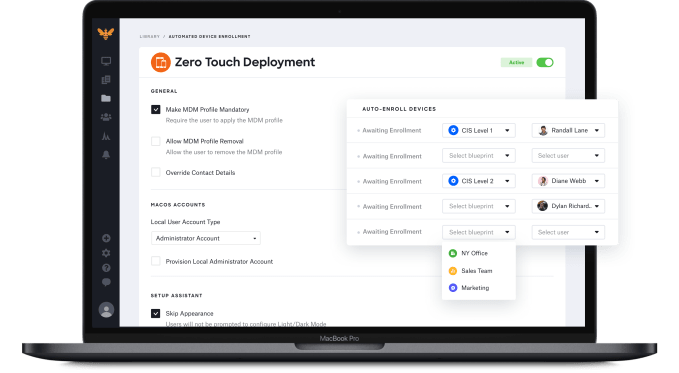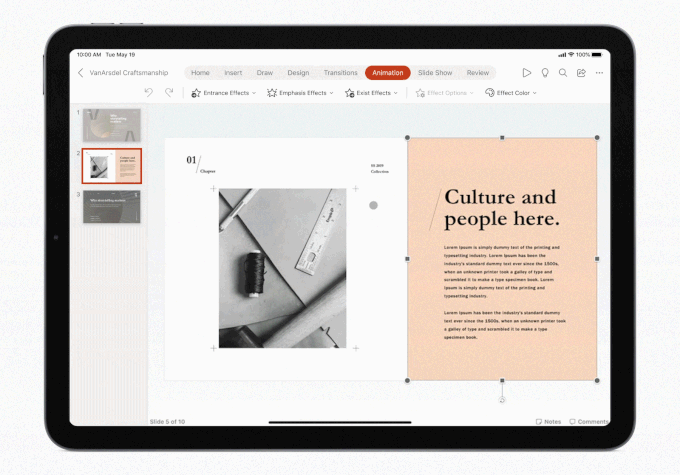Google search engine rivals have dialled up pressure on the European Commission over the tech giant’s ‘pay-to-play’ choice screen for Android users in Europe — arguing the Google-devised auction has failed to remedy antitrust issues identified by the European Commission more than two years ago.
The joint letter to the Commission, which has been signed by Ecosia, DuckDuckGo, Lilo, Qwant and Seznam, requests a trilateral meeting between the EU executive, Google, and the five search rivals — with “the goal of establishing an effective preference menu”.
“We are companies operating search engines that compete against Google. As you know, we are deeply dissatisfied with the so-called remedy created by Google to address the adverse effects of its anticompetitive conduct in the Android case,” they write. “We understand that Google regularly updates you regarding its pay-to-play auction, but it appears that you may not be receiving complete or accurate information.”
A Commission spokeswoman confirmed it’s received the letter and said it will respond in due course, adding that it’s “seen in the past that a choice screen can be an effective way to promote user choice”.
“We have been discussing the choice screen mechanism with Google, following relevant feedback from the market, in particular in relation to the presentation and mechanics of the choice screen and to the selection mechanism of rival search providers,” the spokeswoman also told us, adding that the Commission is “committed to a full and effective implementation of the decision” and “will continue monitoring closely the implementation of the choice screen mechanism”.
Back in 2018 the EU’s antitrust division fined Google $5BN for competition violations related to how it operates its smartphone platform and instructed the company to make good on the issues identified — leading it to offer Android users in Europe a search engine choice screen, rather than simply preloading its own.
Google initially offered a choice based on rivals’ local market share but quickly moved to a paid auction model. This appears to benefit larger, commercial entities at the expense of privacy-focused, regional and not-for-profit alternatives.
Pro-privacy DuckDuckGo has, for example, lost out in recent auctions — while Microsoft-owned Bing has gained more slots. The former lowered how much it bids, saying it believes it cannot profitably win a slot.
European tech for good not-for-profit, Ecosia — which uses search click revenue to fund tree planting — has also denounced the model as unfair, going so far as to boycott it entirely at first. It gave in after seeing its revenue take a massive hit during the coronavirus crisis. (Though failed to gain a slot in almost every market in the most recent auction.)
Google, meanwhile, continue to enjoy a search marketshare in excess of 90% in the region.
The five rivals argue that Google is unfairly constraining the search market by limiting the number of available slots on the choice screen to three (Google’s own search engine is a staple fourth option).
They want a collaborative process to devise a choice screen, rather than Google being allowed to continue to design its own ‘solution’ — favoring a non-paid choice screen with space for many more choices than the current three (non-Google) options, likely with selections based on multiple, pro-competition criteria.
The timing of the letter comes hard on the heels of a competition investigation in the US that’s sparked a similar antitrust case against Google on home turf. The department of Justice filed a long-awaited case against it earlier this month, arguing the tech giant uses a web of exclusionary business agreements to shut out competitors.
Discussing how DuckDuckGo would like to see the Android choice screen evolve, founder Gabe Weinberg told TechCrunch: “We would like to see a properly designed search preference menu that gives people all the search engine options they expect, is free of all dark patterns, and enables search competition to sustainably flourish. Unfortunately, the current implementation meets none of these essential criteria, but we are hopeful that a more collaborative process could fix this failing remedy.”
Another signatory to the letter, France’s Qwant, also brings up the Commission’s goal of regional digital sovereignty — arguing that the Google-devised auction favors US tech giants at the expense of European alternatives, undermining the EU executive’s wider tech ambitions.
“After more or less three to four quarters of auction we are now in the situation where the auction system is seeing the price going up and up every quarter,” Qwant CEO Jean-Claude Ghinozzi told TechCrunch. “The prices are going up and up and competition moves to the large search engine and the global search engine — or the ones that have the ability to invest a lot in this search auction.”
The result is a return to “unfair competition”, argued Ghinozzi, because the cost of acquiring users via Google’s auction is simply too high for smaller European competitors to participate. With the cost per click to win a slot on the choice screen inflating he suggested the current model essentially amounts to Google outsourcing the cost of its EU antitrust penalty to rivals.
“That’s in this letter to the commissioner. We require an urgent opportunity to discuss — inviting potentially Google if they [wish to participate] — that this mechanism doesn’t work,” he said, adding: “We are just starting to pay the bill for Google because at the end of the day we are getting to a level where it is not acceptable anymore for us as a [smaller] search [engine] to pay such an amount to Google just to be listed.”
“The system should be open and not related to any auction or payment and with a much larger list of search being proposed and provided to the new Android phone users,” he added, calling on the EU’s competition commissioner to “urgently” review the mechanism — and “propose some solutions for opening the European search [market]”.
“After more or less a year of the auction system being active we see that definitely they should look again because it does not work. It does not create a fair market and an open market. So that’s the reason we are coming now with this proposition — we urgently need to totally reconsider.”
Auction participants are constrained in what they can say publicly given Google’s requirement that they sign an NDA. This is another reason why they’re asking for a tripartite meeting — with the rivals expressing concerns that not every stakeholder involved in Google’s auction process is seeing the same data as Google is.
“The problem is that we don’t really know what Google says to the European Commission and what we fear is that they say some things to us that they don’t say to the European Commission,” said Guillaume Champeau, Qwant’s chief ethics and legal affairs officer. “The idea behind the tripartite meeting would be to ensure that we all have around the table the same kind of information and the same kind of answers to our concerns.”
Asked about the letter’s reference to a concern that the Commission is not receiving complete and/or accurate information from Google, Champeau also told us: “It’s really a matter of being sure that all that’s being said is the same. And that it doesn’t change depending on who is on the other side of the table.
“We don’t understand why the European Commission wouldn’t ask for changes to the choice screen based on the information that we have. So the only guess that we have is that it’s based on information that is not accurate. Otherwise we would be probably sure that the European Commission would have required changes to the choice screen even sooner than today.”
“We need to design something that appeals, that resonates with Europeans in Europe,” added Ghinozzi, reiterating that the design of the mechanism shouldn’t be left to the same company that’s been fined for anticompetitive behavior and which maintains up to 90% marketshare in Europe.
We reached out to Google for a response to the complaints about the auction model and it sent us this statement, attributed to a spokesperson:
Android provides people with unprecedented choice in deciding which applications they install, use and set as default on their devices. The choice screen for Europe strikes a careful balance between giving users yet more choice and ensuring that we can continue to invest in developing and maintaining the open-source Android platform for the long-term. The goal for the choice screen is to give all search providers equal opportunity to bid — not to give certain rivals special treatment.
While the Commission has yet to offer any relief to the consistent complaints from Google’s search rivals that the paid choice screen doesn’t meaningfully reset the competitive landscape on Android it is set to introduce a legislation package next month which will update ecommerce regulations and introduce a new set of obligations and requirements for so-called gatekeeper platforms holding dominant market positions — a move that’s being widely interpreted as a push to clip the wings of US tech giants like Google.

from Android – TechCrunch https://ift.tt/3jAMBLu
via
IFTTT




